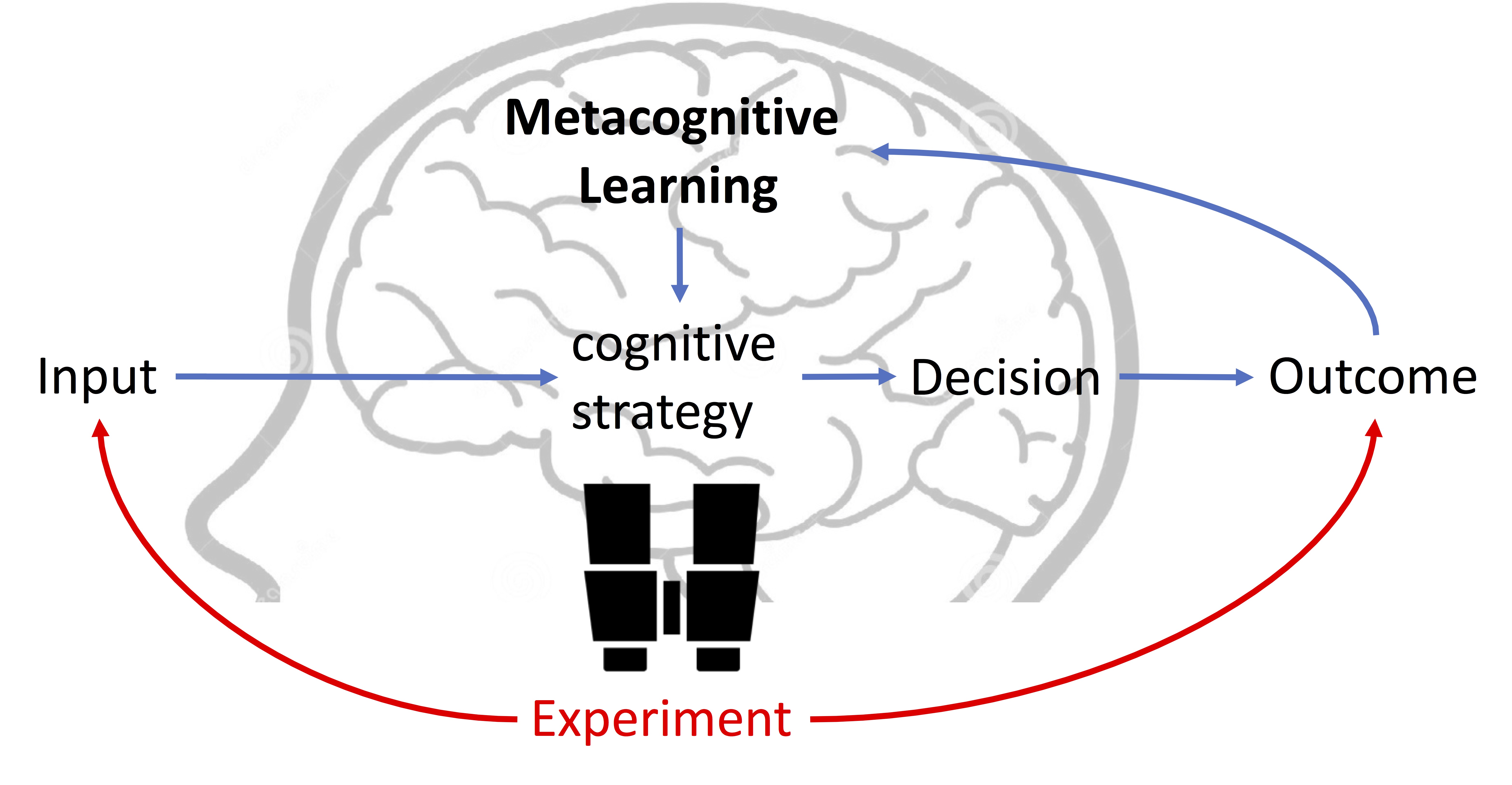
How does the human brain learn how to think and how to decide? What are the learning mechanisms that give rise to human intelligence and enable us to get better at what we do? How can this learning be promoted and accelerated? To answer these questions, we reverse-engineer how people learn when to use which cognitive strategy (Lieder, Plunkett, et al., 2014; Lieder & Griffiths, 2017; [ ]), how the brain learns to control its own information processing [ ], and how people discover and continuously refine their own cognitive strategies [ ]. To make this possible, we have developed new empirical and computational methods for measuring learning-induced changes in people's planning strategies [ ]. We have used these methods to characterize metacognitive learning empirically and our models of metacognitive learning can capture not only how people's average performance improves with practice but can also predict the underlying qualitative changes in people's planning strategies [ ]. So far, this line of research has led to 9 publications and
We translate what we have learned about metacognitive learning into robust and sample-efficient machine learning methods for discovering efficient decision-making strategies. This line of work has already led to a new, cognitively inspired sample-efficient learning algorithm called Bayesian Meta-Level Policy Search (BMPS) that outperforms the state-of-the-art methods for approximate metareasoning [ ]. We have recently extended this method so that it can discover hierarchical planning strategies [ ], produce human-interpretable procedural descriptions of the discovered planning strategies [ ], and is robust to errors in the model of the environment [ ]. In addition, we have successfully extended it to discovering optimal heuristics for multi-alternative risky choice [ ].
In a follow-up project, we are currently investigating whether reflection can improve metacognitive learning and what the underlying mechanisms might be [ ]. The resulting psychological insights and technical advances lay a scientific foundation for leveraging technology to accelerate human learning and improve human decision-making. Our initial results show that guiding people to systematically reflect on how they make their decisions by asking them a series of Socratic questions leads to instantaneous metacognitive learning.
